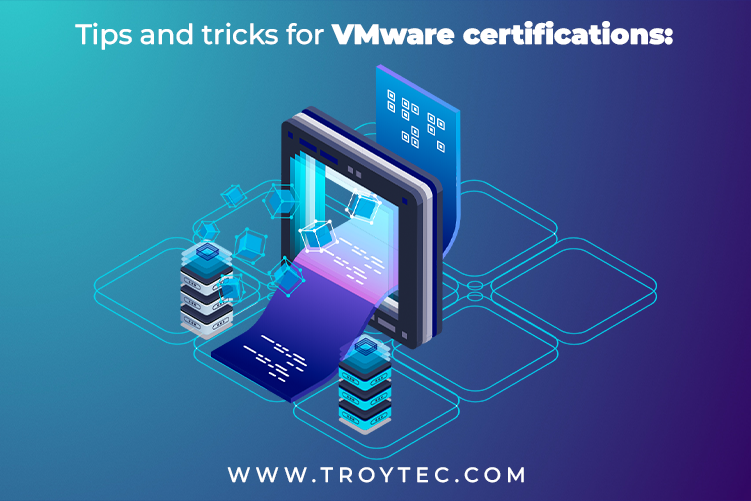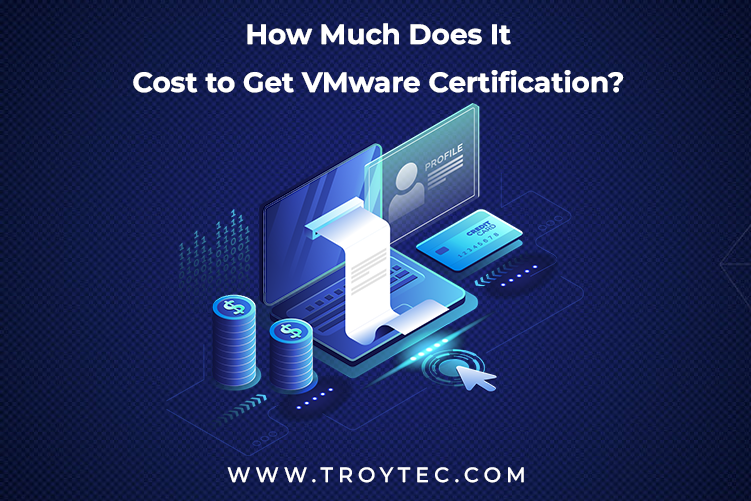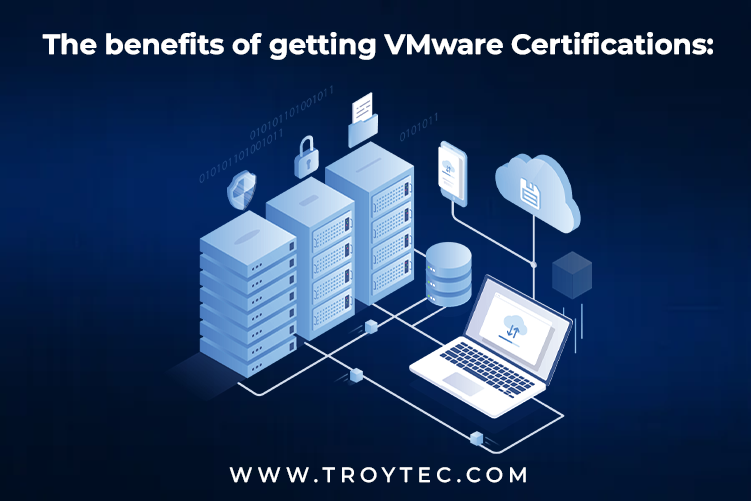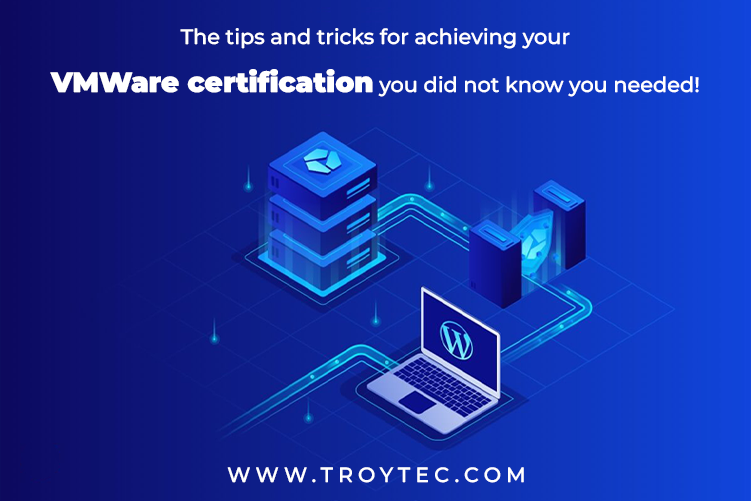Tips and Tricks For Achieving Your VMWare Certification You Did Not know Before!
One of the factors that employers consider when hiring IT professionals in an organization is their qualifications. It is one of the qualifications that continues to be in high demand in the employment market. Companies understand the importance of having VMware-certified employees. It is due to their experience handling tasks that require a practical approach. VMware is also a leading provider of virtualization-related solutions.
So how do you get VMware certification? Certification is achieved by taking a training course for each qualification and passing an exam. Before taking the exam, you need to go through a relevant and thorough preparation process. It has been made easier for you to pass the exam by the tips and tricks stated below for passing the exam. Before we dive into the information, let’s first look at what a VMware-certified truck looks like.
VMware Certification Overview
VMware certification falls into six categories. These include data center virtualization, cloud management, automation, desktops and mobility, digital business transformation, network virtualization, and digital workspaces. All of these categories have different certification levels. Each type has four certification levels:
VCA: VMware Certified Associate-Entry-level certification for IT professionals making decisions about VMware solutions
VCP: VMware Certified Professional-Certification is intended for professionals involved in the configuration, installation, optimization, and management of VMware solutions.
VCAP: VMware Certified Advanced Professional-High-level certification for professionals involved in building, designing, managing, and optimizing VMware solutions.
VCDX: VMware Certified Design Expert-The highest certification level for IT professionals involved in VMware systems.
Higher VMware certifications:
The best VMware certification depends on the nomination and job of the IT professional. Here are some of them:
1. VCP- DCV 2019:
VMware Certified Professional-Data Center Virtualization 2019 is a very popular certification that recognizes the skills to implement and manage vSphere. For non-VCP holders, candidates must have vSphere 6.7 experience and pass the VCP-DCP and vSphere Foundations exams. Other requirements depend on the valid VMware certification.
2. VMware vSphere:
It includes installation, configuration, and management. It is a certification for system administrators and engineers that provides a detailed overview of the layout, structure, and management of VMware vSphere 6.7, which consists of vCenter Server 6.7 and VMware ESXi 6.7.
3. VMware NSX ICM 6.4
VMware NSX is part of a software-defined data center. This certification is intended for professional network or system administrators working with gateway services and NSX environments.
4. VMware Horizontal Training
This training is intended for IT engineers who need to validate their VMware Horizontal 7 installation, configuration, and management skills.
5. VMware Desktop and Mobility Certification
This certification is among the four pillars of the company’s Master Services Competency. VMware VDI is one of the ultimate virtual desktop platforms.
6. VCP certification for cloud management and automation
It is one of the essential master service competencies. The credential aims to improve the installation, configuration, and optimization skills associated with VMware vRealize.
Tips and tricks for VMware certifications:

Authentication (especially at a higher level) is difficult. It can take a considerable amount of time and dedication to prepare for the exam fully. Here are five tips to get you in the right direction to get a good start.
1. Start or participate in a study group
One of the surest ways to retain material beyond passing the exam is to engage in it. There is no more suitable way to do this than to enter a group and discuss the material. Work together on the whiteboard. Try it out together in the lab. Research groups help identify weaknesses in skills and help strengthen them. All group members have different perspectives based on experience, and seeing the material through those different lenses also helps to understand it more broadly and hold it better.
Research groups can (and should) be formed with your team, your company, or other individuals in your area. Working directly together, especially with a whiteboard and experimental equipment, is fun and valuable. However, if you do not have a local connection focused on the same area, there will always be research groups that meet online in places like Google Hangouts. You may need to do some cultivation, but you can and should find peers of the same level to study online.
2. Socially involved
Perhaps the social community is the most valuable tool in our industry, and too many people are unaware. It would be incredible if we could connect with 20 like-minded individuals in the community and help each other grow and learn. What if we could go further and connect with thousands of like-minded people worldwide for the same purpose? It is related to VMware anyway, so Twitter seems to be the medium of choice. It could be the soundest of the five guidelines.
If you do not sign up for a Twitter account, you can always create one. Start following people who talk about IT in general, VMware, virtualization, and more. If you are already engaged on Twitter, start interacting with people tweeting about a particular certification. If you have a working certificate, search for “#VCP.”
3. Use blueprints and test guides
There is a tremendous amount of material covering VMware certification. The right place to start going through all these valuable things is the material provided directly by the vendor. These two tools help you evaluate yourself and determine which areas you need to focus on when studying. They serve independently of each other but are very effective when used in tandem.
The VMware Exam Blueprint is a document that accurately describes the items of interest. It is an example using the VCP5-DCV blueprint. There is no reliable way to know what to test other than checking the blueprint. Non-blueprint test preparation materials are purely speculative. Blueprints are well organized and help you create a learning plan and schedule to complete the topic.
The official certificate guide is published by VMware and covers most of the materials on the exam. Here is an example: Official guide to VCP5. One thing to recall is that official certificate guides usually leave gaps filled by additional research. If all you had to do to pass the exam were to read one small book, it would not take a lot of struggle. Official guides form a strong basis on which you can build.
4. Build a lab
It is more appropriate for some exams than others, but all VMware certifications are more comfortable to learn in a lab environment. The lab is a harmless place to play with unfamiliar configurations and tools. (Do not practice production equipment!) It shows how to create a nested lab on a workstation, build a cheap lab using a shuttle or NUC hardware or build a complete lab. There are many good lab guides out there. If you have the budget, expand your lab with server-grade hardware.
If you are just getting started, a tool that will help you grow almost quickly is a community-supported tool called AutoLab. It is a bundle of scripts and configuration files that install a full-fledged vSphere infrastructure. You will be up and running and ready to study within a few hours.
5. Set the date
Finally, motivation is key to passing a certification, especially a challenging one. If you have a good purpose and are behind the desire to be certified, you will achieve what you are trying to do. Step 1 is to determine the “reason.”
- Will this make you more money?
- Would you like me to make you more marketable?
- Would you like to impress your employer? Will it help your company grow?
Whatever the reason, if you know the reason, step 2 is to commit. People who say they will certify not do that because they were not saved. And the best way to combat this is to schedule an exam. Once you have paid for the exam and the date appears on your calendar, you are much more likely to stop relaxing and get to work.
A generalization of Parkinson’s Law states that “the time you need to perform a task is the time it takes to complete it.” If you do not have a date on your calendar, you will not feel 100% ready, and you will be studying indefinitely. Make sure you’re ready when the date appears on your calendar and the number of days counts down. Again, the most valuable step you can take in preparing for VMware certification is to join the community.
How much does it cost to become VMware Certification?

The cost of VMware certification depends on the level of certification. The cost of obtaining VMware VCA, VCP, and VCAP certification are $ 125, $ 250, and $ 450 (USD), respectively.
VCDX certification varies from truck to truck and costs $ 3,995 (USD). Prices for all exams also vary by location and currency. Remember that exam costs are not the only costs associated with obtaining a qualification. Getting VMware certification can be a significant investment between training materials, experimental equipment, and travel and accommodation (for VCDX).
VMware recertification and renewal
Recertification is commonly acknowledged in the IT industry as essential for professional growth. If your skillfulness is not up to date, your certification loses significance. Keeping your credentials up-to-date will improve your credibility and display your career, learning, and organizational commitments. The certificate expires 2 years from the date of acquisition. VMware’s re-authentication policy has three methods to re-authenticate.
- Please get the latest VMware Certified Advanced Professional (VCAP) certification on the identical track as VCP and take it to the successive level.
- Attain the next version of VCP on the identical track if it is available.
- Gain new VCP certification on a different truck. You cannot take the actual VCP exam you employed to obtain your previous certification.
- Nevertheless of your choice, reauthentication keeps VMware knowledge up to date.
VMware Certified Salary and Career Information
The demand for IT professionals with virtualization skills is constantly increasing and continues to grow as more organizations take advantage of the improvements in efficiency, availability, and cost savings that virtualization IT resources bring. VMware is among the distinguished providers of virtualization products and solutions. With VMware Technology certification, you can add value to almost any IT carrier.
Depending on their professional experience, VCP-certified employees can earn between $ 67,359 and $ 102,709 (USD) annually. VCP roles enclose IT managers, system administrators, and system engineers. Employees with VCAP certification can make between $ 84,998 and $ 152,308 (USD) annually. VCAP holders are commonly found in IT directors, architects, and senior technical consultants.
VCDX holders, on the other hand, can make up to $ 170,000 (USD) annually. These are usually found in Virtualization Architect, Chief Architect, and Solutions Architect positions.
VMware’s investment in certification and training delivers the foundation required to leverage virtualization technology. You can concentrate on storage, networking, and virtualization technologies when you qualify for VMware. Each of these technologies will enable you to specialize in your IT career.
The benefits of getting VMware Certifications:

VMware certification is an excellent qualification to add to your resume. Recognized as one of the most prestigious IT certifications in the field, it is guaranteed to assist graduates and professionals achieve a competitive edge in the employment market. Below are seven benefits of being certified as one of the world’s top cloud and virtualization software and service providers.
1. Beyond the crowd
Skill-focused accreditation is required of all IT professionals, but many do not spend more time getting a higher qualification than a traditional college degree. There is a strong demand for expertise in all areas, and VMware certification makes it easy to be distinguished in the crowd of job seekers.
2. You can negotiate your salary
If you are a recent graduate or have little experience, you may feel completely helpless when negotiating your salary. Having VMware certification on your resume makes it easier for your employer to negotiate higher wages.
3. Your colleagues will respect you
Nothing beats the respect and recognition of our colleagues. You can also encourage your colleagues to get certified. It can lead to increased productivity, improved employee benefits, and gratitude from the company.
4. You can apply for your dream job with confidence
With the VMware certification, you can confidently apply for your dream job. This certification reflects your advanced skills and knowledge and helps impress potential employers.
5. You have endless career opportunities
VMware offers different certifications in different domains to suit each individual’s career goals. Choosing the proper certification can give you a myriad of opportunities. These qualifications can improve your professional life, from getting a new job to completely changing your career path.
6. You will be hired for an advanced role
VMware certification provides a stepping stone to reaching a high level in your career. If you are ambitious enough, you can chase the top position of your company with the qualifications to back you up.
7. You will learn — lots!
We encourage you to attend the reputable VMware IT College, where you will have the appropriate knowledge to pass the exam easily. Leading universities have qualified instructors to use first-hand experience and hands-on examples to help you master the skills that take you to the next level of your career.

